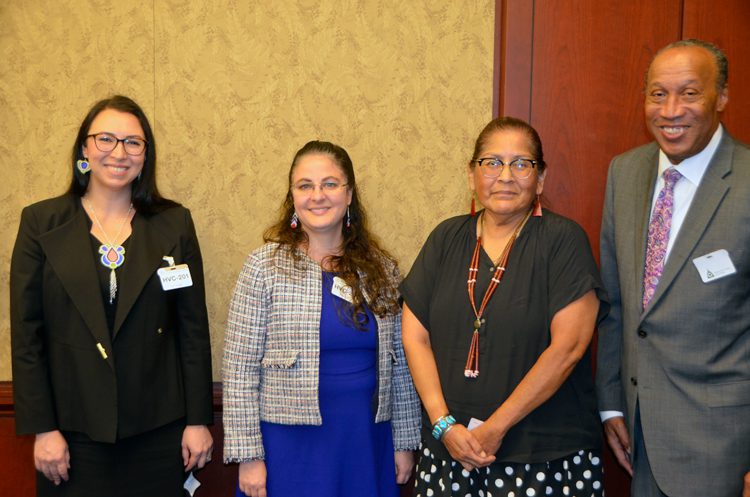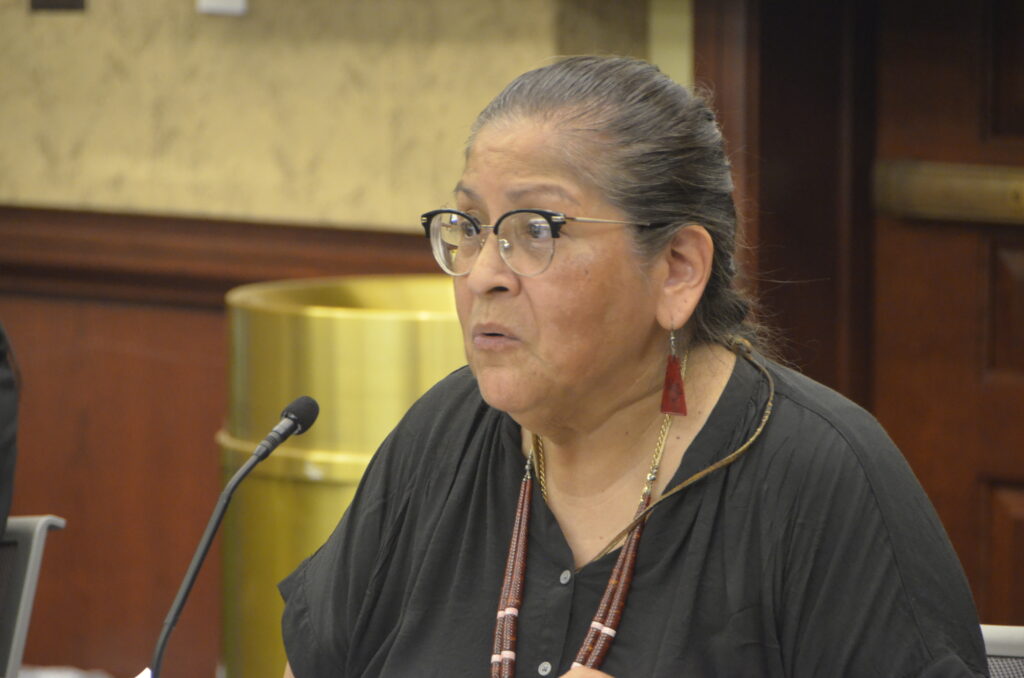ICWA BRIEFING FOCUS ON NATIVE CHILDREN
On September 20, 2022, social workers, advocates, and Hill
staffers gathered in Room HV201 in the Capitol Visitor Center to discuss
how Congress might respond if the United States Supreme Court rules the
Indian Child Welfare Act (ICWA) is unconstitutional. Co-hosted by CRISP
and the National Foster Youth Initiative, the briefing was held in
conjunction with the Congressional Social Work Caucus and the
Congressional Caucus on Foster Youth. Congresswoman Barbara Lee
(D-CA-13), chair of the Social Work Caucus, provided a video greeting to
set the tone for the briefing.
CRISP Legislative
Director Angelique Day, an associate professor at the University
of Washington School of Social Work and a descendant of the Ho Chunk
nation, consisted of Kathryn Isom-Clause, Bureau of Indian Affairs
Deputy Assistant Secretary for Policy and Economic Development; Kristen
Torres, MSW, child welfare legislative aide for Rep. Judy Chu (D-CA-27);
and Sonia Begay, a member of the Navajo Nation and grandparent
caregiver who provided compelling testimony about her experiences with
ICWA during the time she sought parental custody of her grandchildren
who attended the briefing.
The briefing began with opening
remarks from CRISP director Dr. Charles E. Lewis Jr., followed by
remarks from Rebecca Louve Yao, executive director of the National
Foster Youth Institute, a nonprofit organization founded by Rep. Bass
to









No comments:
Post a Comment
Please leave a comment.